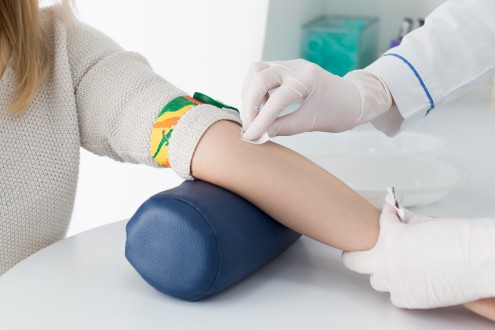22 Jun 2021
News
New project on non-invasive prenatal testing
The Council has begun a new project that will consider the ethical issues raised by recent and potential future developments in non-invasive prenatal testing (NIPT).

Testing for genetic conditions such as Down's Syndrome now can be carried out by means of a simple blood test from 10 weeks of pregnancy. This kind of testing is more accurate than previously available early screening tests and does not carry the risk of miscarriage of invasive diagnostic tests. However, concerns have been raised about routinisation and the potential for non-invasive prenatal testing to provide wider genetic information about the unborn child.
The Council convened a roundtable meeting in London in January 2016 to discuss any issues raised by recent developments in non-invasive prenatal diagnosis, testing and screening. A note of the roundtable meeting is available to download. The Council commissioned a background paper to inform the discussions at the meeting, which provides an overview of clinical, ethical, social, legal and policy issues raised by NIPT.
After considering the discussions that took place at the roundtable meeting, in March 2016 the Council decided to set up a Working Group to consider in more depth the ethical, legal and regulatory implications of recent and potential future developments in NIPT. The Group is chaired by Tom Shakespeare, Professor of Disability Research at the University of East Anglia. The members of the Group bring expertise in clinical genetics, genetic counselling, psychology, law, ethics and disability studies. The members were appointed for their professional knowledge and expertise, and their ability to examine the evidence and views that will be gathered during the project.
The Terms of Reference of the project task the Working Group with considering questions about the use of NIPT in NHS screening programmes, the provision of NIPT in the private healthcare sector, the responsibilities of providers to ensure individuals and couples are making informed choices, and any wider implications for society of increased uptake of NIPT, for example for people with disabilities. The Working Group will engage with a range of people and organisations in the consideration of these issues.
The Council will report the findings of the project around the end of 2016.To express an interest in this project and to receive alerts about calls for evidence and views, please contact Catherine Joynson, Programme Manager cjoynson@nuffieldbioethics.org
